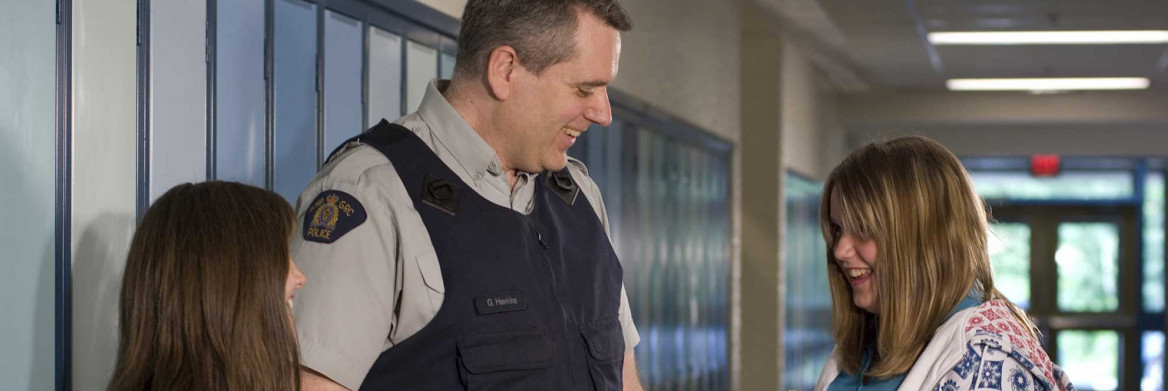Keeping up with young people can be challenging sometimes. To help officers and employees stay connected to younger generations, the RCMP uses a training program to stay engaged with youth and keep them safe.
Andrew Hachey of the RCMP's National Youth Services helps co-ordinate the RCMP's Youth Officer Training Program.
"This will help officers who've just graduated from Depot get updated information on youth victimization,
" he says. "And it will also help that veteran, with 10-years of experience for example, reconnect with youth issues and see how they're evolving.
"
Priority issues
The program also covers issues mental health and suicide, addictions, the impact of social media, and details of the Youth Criminal Justice Act.
It includes presentations from experts and interactive opportunities for participants to discuss a wide-range of complex issues, such as youth homelessness in urban and rural communities.
According to information from the Canadian Observatory on Homelessness, 20 per cent of Canada's homeless population consists of young people, as many as 40,000 people.
"Homelessness is often a predictor of crime and victimization,
" says Hachey, who notes that helping young people live a healthy and stable life could help them avoid negative interactions with the law.
Additionally, some young people today fall victim to radicalization because they feel discriminated against, join social networks that spark an interest in extremist ideology, and find a sense of belonging in them.
However, Hachey adds the environment in which radicalization can take place looks very different than it did 20 years ago.
"Today, people can become radicalized in the privacy of their own home. The internet and social media can be used to radicalize young people anywhere,
" says Hachey, who adds that fighting it means creating a positive environment – at home and school – for young people.
Engaging and connecting
RCMP Cst. Aayesha Dean took the course before the COVID-19 outbreak stopped in-person sessions in March 2020. She says the program was her opportunity to talk and learn more about big-topic issues. She also says it inspired her to find creative ways to deliver information to youth that helps rather than scares them.
"I remember when I was in high school, we were given a presentation about impaired driving,
" says Dean, based in Selkirk, MB. "We were given facts that were meant to scare us. I want to engage and connect with the kids.
"
Cst. Dean says she organized a sports night for students that also served as a venue to talk about addictions and health issues for youth who consume alcohol.
"It's about being engaging and trying to have a conversation with the kids so they can learn something and also get to know us, the officers in their communities, and that they can talk to us and don't have to be scared.
"
Terri-Lynn Vidal is the Youth Strategies Coordinator for RCMP Community Policing Services in British Columbia. She is part of a team of public servants and police officers who work together to provide operational support and resources specific to youth issues, to BC RCMP detachments, municipal police, provincial-level stakeholders and community partners who work with youth.
Some of the more prevalent concerns have been around mental health – especially anxiety related to the pandemic –poverty and gangs.
"For me, the course is a great way to set yourself up with an understanding of the various youth issues police will be dealing with,
" says Vidal, who stressed the need to keep listening and building relationships with young people.
Hachey says officers and other RCMP personnel whose work focuses on youth should consider taking the training.
For more information on the Youth Officer Training program, send an email to CYCP_CPCJ@rcmp-grc.gc.ca.
